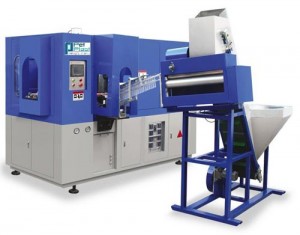Although we produce a wide range of products they can be broken down into road cones, barriers, signs, litter bins. But we don’t just do road cones we also do custom mouldings.
Road cones are usually intrusion moulded or compression moulded. If it is a two piece road cone the top is blow moulded and assembled with the base.
Traffic Barriers are blow moulded but the feet are intrusion moulded and connectors are injection moulded.
Signs are intrusion moulded in pieces and contructed at the machine very efficiently.
Litter Bins are rotation moulded. Whilst its an old technology its very good for changing colours in production,
Custom moulded products can be made in any of the ways below. We can advise on which method would be best for you but take a quick look now at the different moulding techniques we can offer you.
Blow Moulding – Pre-mixed material is automatically fed into the machine hopper, this material is heated until melting point, and then extruded vertically via gravity. Two machined profile mould then encase the material, whilst compressed air is used to inflate the parison against the moulds. The plastic is cooled within the mould, and then removed after the cycle is complete.
Melba Swintex currently own six of the most modernised blow moulding machines of diverse size in the UK. It also owns the largest machine currently in the UK.
Compression Moulding – Pre-Mixed Material is removed from the extruder after being melted, and then placed into one half of the mould. The top part of the mould is then pressured down and compresses the material into the moulding. A short period is allowed for cooling, and then the product is removed and left to further cool down.
Intrusion Moulding – Pre-mixed material is automatically fed into the machine hopper, this material is heated until melting point, and then extruded into the mould. The mould can either be water or air cooled. Once the product has solidified enough, It is removed from the mould either by hand or with ejection.
Rotational Moulding – Recyclable granulated polyethylene is placed inside the mould. A flame is held underneath to melt the plastic. The mould is then rotated continuously over a period of time. Centrifugal force causes the melted plastic to be pushed to the walls of the mould. The flame is removed whilst the rotation continues, after the cooling process the product can be removed.
Hopefully from this you can see how our road cones, barriers, signs, litter bins and custom mouldings are made.
 Language
Language








